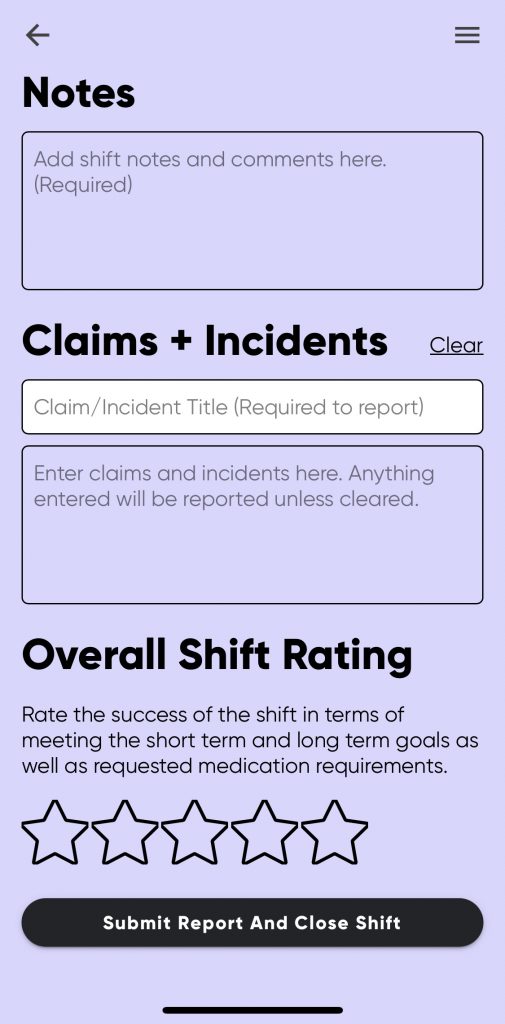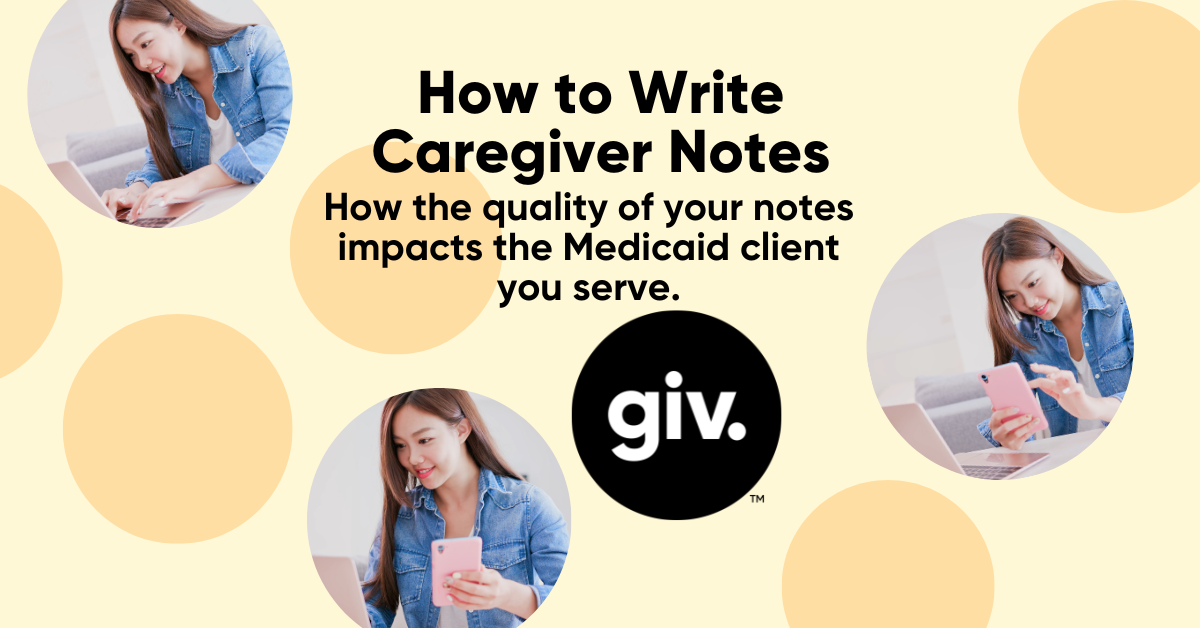Aside from helping your client be safe, healthy, and cared for, proper note taking is a very critical role in the job description of a caregiver. Our aim is to teach caregivers how to write caregiver notes, why it’s important, and how it impacts the individuals you serve.
Why Caregiver Notes Are Important:
Caregiver notes are important because they help both us as a provider, and Medicaid at the state level know what is happening during caregiving shifts. Every three months, we submit a quarterly summary to the state to justify the continuation of services for the individual with a disability. Medicaid ultimately wants to know these three things when looking at a quarterly summary:
- What was done to work towards the goals of the client?
- What was done to reach the goal of community engagement?
- What was the overall behavior of the client?
- Has any progress or regression been observed?
When you’re writing your notes, please write them with these things in mind. The better notes you write, the better quarterly summary we can write, which means the state will continue funding caregiving for the individual, and you as a caregiver will still have employment with that individual.

Caregiving is Another Medical Profession:
Caregiving is just like any other medical profession. You should see your role as a caregiver the same way you would the job of another healthcare worker. When you visit a doctor, they’re writing notes about your visits. These notes are used to seek reimbursement from insurance, help other providers have a good idea of your medical history, and to keep a written record of how you’re doing as a patient. Caregiving isn’t very different, which is why a written record of your caregiving shifts are crucial to the overall well-being of the person in services.
How to Write Caregiver Notes:
In our caregiver mobile app you’re prompted when to clock-in, clock-out, and when and where to write your notes for each shift. In the screenshot below you will be able to see the fields you’re required to fill out for each shift.

The Notes Section:
The notes section is where you will write your notes. In this section we do not need a written novel for each shift. We simply need a few short sentences on what was actually done during the shift. This can look like:
- Today Jenny and I went to the park.
- We worked on hand washing and brushing teeth.
- I helped Jenny make lunch.
- Jenny was agitated and complained a lot while we were working on ADLs but her behavior was pleasant the rest of the day.
Your notes can be that simple. We have seen a lot of notes over the last few months that look like:
- We had fun
- Today was great
- Great shift
While we are glad to hear people are having fun on their caregiving shifts, these notes are not helpful for us as a provider when we write a quarterly summary for your client and need to justify the continuation of services.

You Can Voice Text Your Notes:
We get that typing your notes on a phone might feel cumbersome or annoying for some individuals. When you click into the notes box, the bottom right hand corner of your keyboard has a little microphone. You can use this in the mobile app to voice-to-text your notes to make this even faster. We really don’t care about punctuation and the notes looking perfect, we just want to know what’s happening!
Reporting a Critical Incident:
At the end of your shift the app gives you a section to report any critical incidents. Medicaid defines a critical incident as, “any actual or alleged event or situation that creates a significant risk of substantial or serious harm to the physical or mental health, safety or well being of a waiver participant.” To add to that, we would say that a critical incident would also be defined as any of those above mentioned things happening to a caregiver during their shift. Examples of a critical incident would include:
- The client having a significant decline in health or having a sudden injury that requires seeking medical treatment during a caregiving shift.
- The client threatening to harm themselves or someone else during a shift.
- The client running away or putting themselves in harm’s way during a shift.
These are just a few things that would be classified as a critical incident. If you’re ever in doubt, please report anything you may consider to be a critical incident, and our agency team will move through the appropriate protocols to ensure the health and safety of everyone involved.
We hope this guide was helpful for you to better understand how to write your caregiving notes, and the importance that these notes play in the life and well-being of the client you serve. If you ever have any questions, please reach out to our team via email at support@giv.care.







